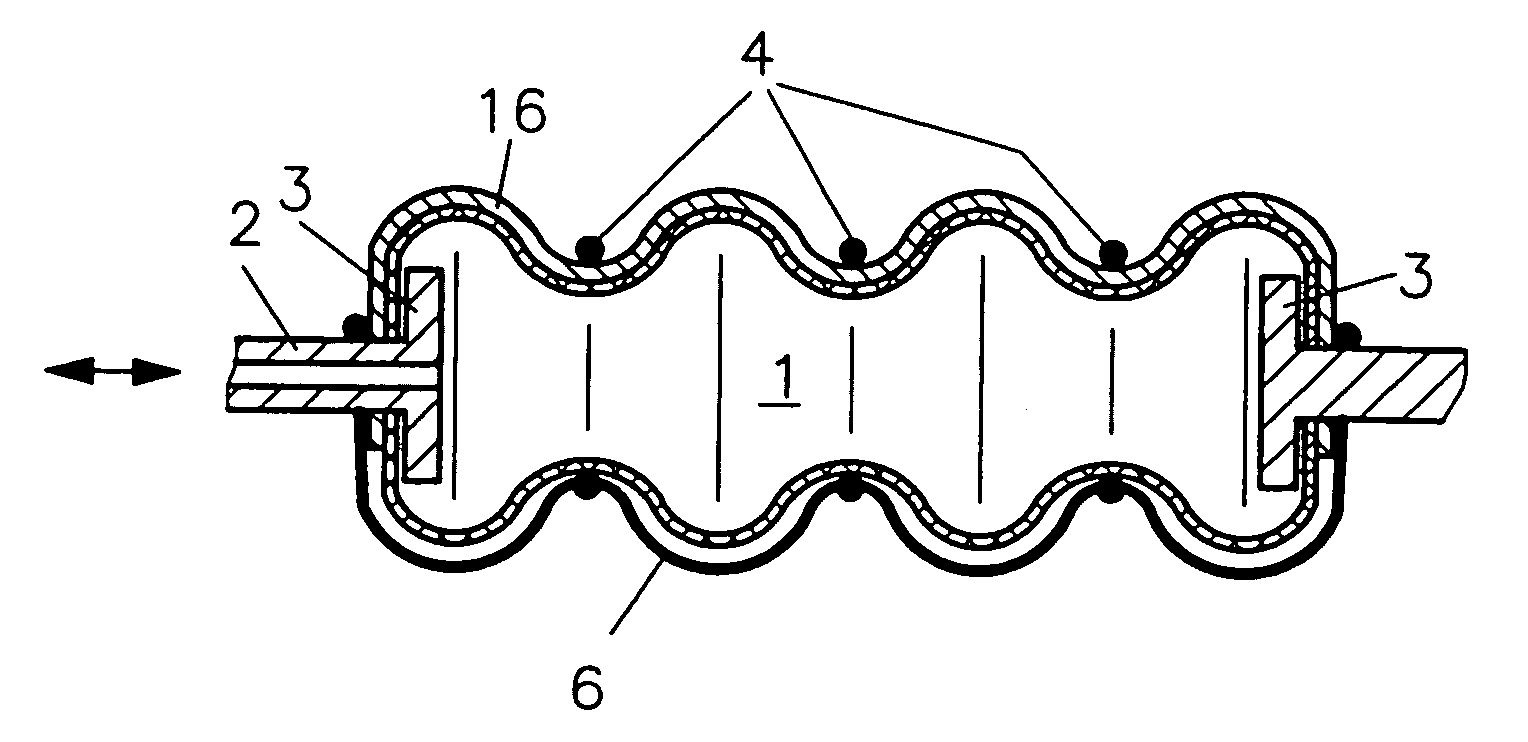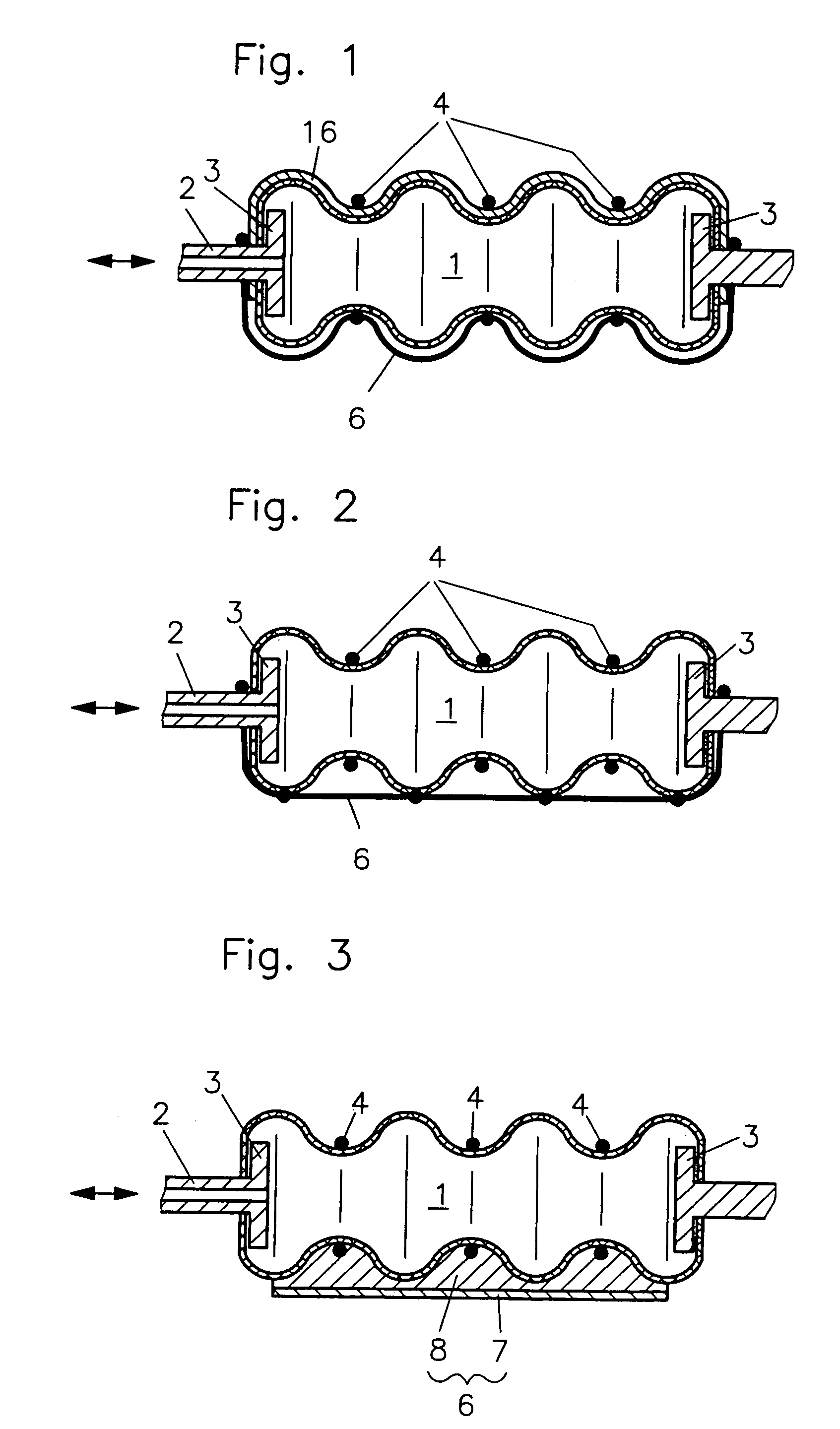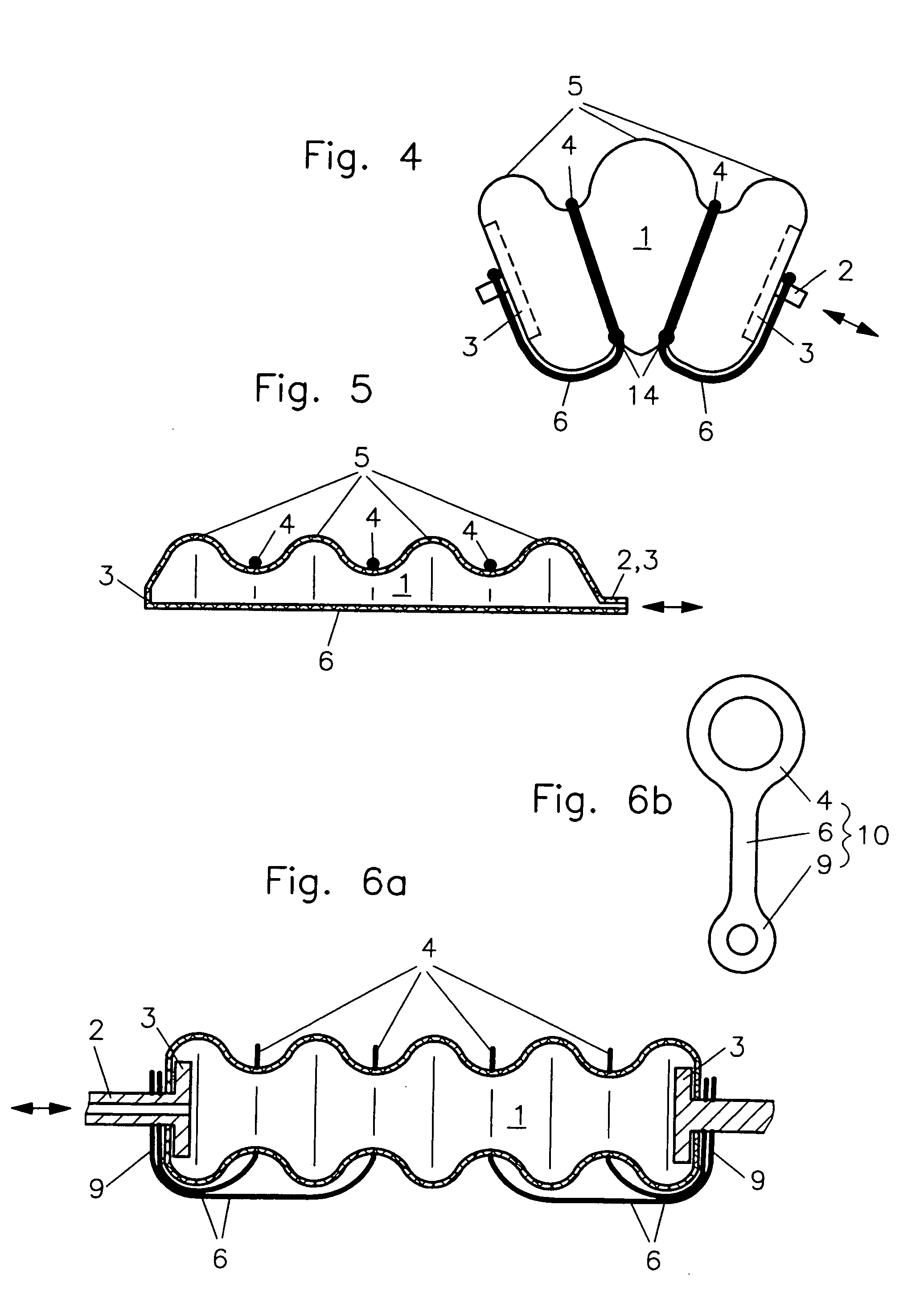Fluidic drive
a technology of fluid drive and rotating shaft, which is applied in the direction of flexible wall reciprocating engines, reciprocating piston engines, positive displacement engines, etc., can solve the problems of limited operating fluid volume needed for a certain stroke or pivot or rotational movement, and it is not important whether the wall of the hollow body is of single- or multi-wall design
- Summary
- Abstract
- Description
- Claims
- Application Information
AI Technical Summary
Benefits of technology
Problems solved by technology
Method used
Image
Examples
fourth embodiment
[0027]FIG. 4 shows a fourth embodiment with a connection 6 in the form of pleats interconnected at one side of the hollow body which are connected to the force transmission areas 3 in a non-elastic manner (for example by strings). In contrast to the arrangements shown in the previous figures, the connection comprises in addition to the additional components such as strings or cement, particularly non-resilient wall areas between the individual, preferably point-like, connections 14 on the pleats.
fifth embodiment
[0028]FIG. 5 shows a fifth embodiment wherein the connection and the ring elements are formed by correspondingly designed non-elastic walls. The pleats or bellows configuration of the hollow body and consequently an expandability of the hollow body exists only at one side of the hollow body (in FIG. 5 the upper half) whereas the flat area opposite the pleated wall area is formed by a non-stretchable wall and therefore represents the non-resilient connection 6.
[0029] Because of the small diameters of the supply and release duct 2 hollow bodies as shown in FIG. 5 cannot be manufactured by a single stage vulcanization process on a molded core. They are therefore manufactured for example by a two-stage molding process wherein, in a first step, the bellows-like area of the hollow body is manufactured for example from an elastomer by way of a vulcanizing process and, in a second step, the smooth or flat area consisting of an elastomer possibly with an additional non-resilient reinforcemen...
sixth embodiment
[0030] In a sixth embodiment as shown in principle in FIGS. 6a and 6b, non-resilient connections 6, ring elements 4 and mounting means 9 for attaching the connections 6 to the connecting areas 3 are comprised of at least one guide component 10 of a foil material. A pattern for such a guide component 10 is shown in FIG. 6b. FIG. 6a shows the application of several such guide members to a bellows-like hollow body 1, wherein, in the arrangement shown, each pleat is provided with its own guide member which is connected to the force transmission area. Other possible versions comprise also a coupling of two or several connecting areas by way of, in each case, a single guide member. If used as a pivot drive, the connections 6 may not be provided only at one side as shown in FIG. 6, but additionally at the opposite side.
[0031] The installation of the fluidic drive on two components 12, which are interconnected by a joint 11, is shown for example in FIGS. 7a and 7b. The components 12 include...
PUM
 Login to View More
Login to View More Abstract
Description
Claims
Application Information
 Login to View More
Login to View More - R&D
- Intellectual Property
- Life Sciences
- Materials
- Tech Scout
- Unparalleled Data Quality
- Higher Quality Content
- 60% Fewer Hallucinations
Browse by: Latest US Patents, China's latest patents, Technical Efficacy Thesaurus, Application Domain, Technology Topic, Popular Technical Reports.
© 2025 PatSnap. All rights reserved.Legal|Privacy policy|Modern Slavery Act Transparency Statement|Sitemap|About US| Contact US: help@patsnap.com



